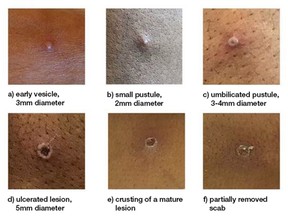Clade Ib mpox is more virulent and better adapted for human-to-human transmission, allowing it to spread silently between individuals

The discovery of a new mpox strain amid a rise in cases in the Democratic Republic of the Congo (DRC) has raised concerns about its potential to spread internationally and spark global outbreaks.
What is Clade Ib mpox?
There are two types of the mpox virus: Clade I and Clade II. Clade I, which is endemic to Central Africa, leads to more severe illness, including death, when compared to Clade II. Clade II, found mainly in West Africa, triggered the global outbreak starting in 2022. This variant is milder in its impact.
Where did Clade Ib come from?
According to other researchers, starting from September 2023, cases of Clade Ib mpox initially appeared among sex workers in Kamituga, DRC. Clade Ib mpox has now reached towns near the Rwanda border, near Burundi, and Uganda.
What makes it different from earlier mpox strains?
Clade II which spread globally in 2022, is primarily sexually transmitted, mostly affecting men who have sex with men.
Researchers report that in 2023, the Clade Ib strain initially spread through sexual transmission in the local sex work industry in DRC. However, it later spread within households from mothers to children, eventually reaching people outside households without sexual contact. Researchers believe it is more easily transmitted, making it potentially more dangerous.
What are the symptoms?
According to the WHO, mpox symptoms typically start within a week but can appear anywhere from one to 21 days after exposure. Common symptoms include a rash, fever, sore throat, head and muscle aches, back pain, low energy and swollen lymph nodes. A rash is a common first symptom, however, others may experience different symptoms first. These symptoms can last from two to four weeks. The rash develops into a painful pustule (lesions filled with yellowish fluid) and as it heals, lesions form scabs that fall off.
Why is there concern?
What can be done to prevent spread?
WHO advises, “All countries, including their health authorities and clinicians/health-care workers, should take note that the global mpox outbreak is ongoing; and, furthermore, the occurrence of sexual transmission of the Clade I virus has been confirmed. Infection with Clade I MPXV may lead to an increased risk of severe illness.”
Individuals can check with local public health units or sexual health clinics in Canadian cities or provinces to determine their eligibility for the vaccine. Most provinces offer the vaccine to three main groups of people who are typically at higher risk: men who have sex with men, individuals who identify as a sex worker, regardless of their sex or gender, and individuals who work at a “sex on premises” venue.
To prevent the spread of mpox, individuals should discuss sexual health with their partners and monitor for symptoms. If someone notices lesions or other symptoms, they should cover the lesions with clothing or a bandage, avoid close contact with others, and seek medical care from their physician.
Our website is the place for the latest breaking news, exclusive scoops, longreads and provocative commentary. Please bookmark nationalpost.com and sign up for our newsletters here.